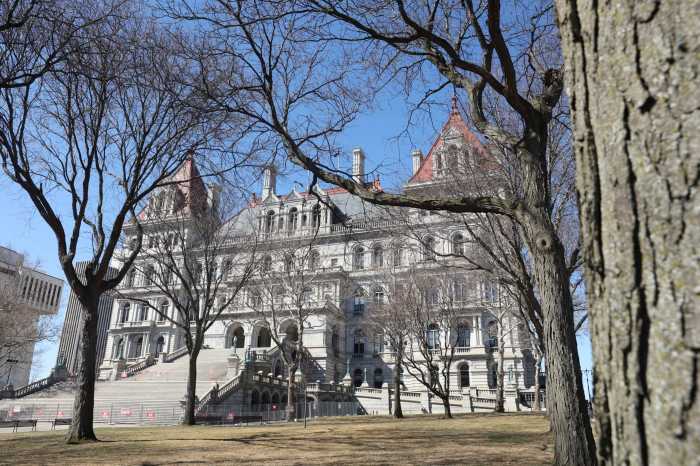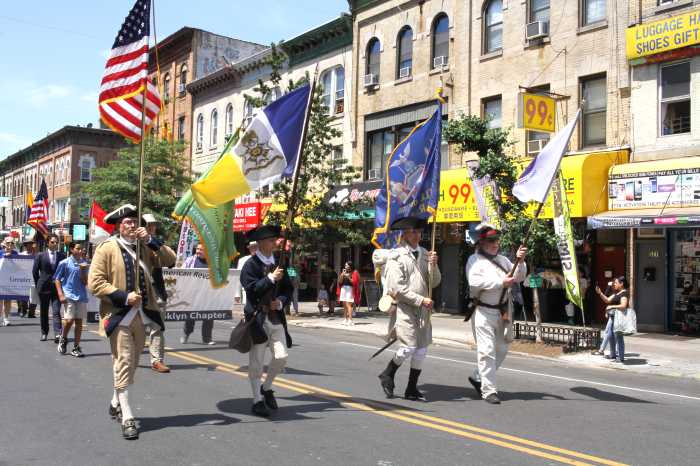Manhattan’s real estate market, like the market across the United States, is cooling off after a white-hot year.
Existing-home sales hit a six-month slump in July, the National Association of Realtors reported in its August 18 report across the US. Home prices fell for the first time in three years in July, as sales were 20.2 percent lower than they were one year ago, according to a report by mortgage software, data, and analytics firm Black Knight. It was the biggest single-month decline in prices since 2011. The firm also noted July’s performance was the second-worst dating back to 1991.
Manhattan’s luxury home market was no exception. Data from Miller Samuel and Douglas Elliman reports showed that sales contracts for co-ops and condos in Manhattan fell 30% in the second quarter compared with June 2021, CNBC noted in a separate report.
By August, the market’s sales reached its lowest point since August 2020, according to Olshan Realty’s weekly sales report.
“We kind of went from driving down the autobahn at 120 miles an hour to back on the thruway at 55 miles an hour, and it just seems much slower,” said Jennifer M. Corcoran, a real estate salesperson at CORE Real Estate, who called 2021 into 2022 “the best years” of many real estate agents’ careers.
Officials at the Federal Reserve indicated in July that the slowdown in the housing market will continue, according to the New York Times. However, the market is sending conflicting signals. Upcoming midterm elections and the current political climate are compounding the situation.
While there is talk of recession, the agents aren’t alarmed. Underlying economic data points such as jobs numbers and dropping gas prices “don’t point to a recession,” Corcoran, 55, said.
Matthew Bank, vice president of Bank Neary Real Estate, added, “Things are happening in the economy and the interest rates are putting the brakes on some things, but there’s still a lot of robust spending [and] earning and a lot of interest in New York.”
For some LGBTQ people, the current anti-choice and anti-gay political climate is sparking some serious conversations about where to live.
Kristi Ambrosetti, a lesbian real estate agent at Sotheby’s International Realty, said some of her LGBTQ clients are talking about Plan B if queer rights are eroded in the US.
“We were blindsided by abortion rights being taken,” Ambrosetti, 41, said about the Supreme Court’s decision overturning Roe v. Wade on June 24. “That was a wake-up call. It’s not going to stop there. We know what Clarence Thomas has expressly told us is down the pipeline with gay rights,” she continued.
“I’m hearing many conversations and then it all comes back to New York real estate,” she added, noting at the same time that people have confidence in New York. People are “feeling that New York pride.”
Is that New York pride enough against the factors that are cooling the housing market and making buyers and sellers feel uncertain about what will come next?
The agents who spoke with Gay City News said that most of their LGBTQ and straight clients are relatively focused on the usual home buying decisions and rooting themselves in New York.
Ambivalence
Positive news isn’t swaying some buyers and sellers. Ambrosetti said she worked with a nice young straight couple who were first-time homebuyers, but got rattled by the recent dip in the stock market and pulled out of their deal.
Bank, 56, and Corcoran also said they recently had buyers get nervous and back out of deals or the market.
Some sellers are getting serious about pulling their homes from the sales market and listing them on the rental market, Bank and Ambrosetti said.
“Sellers are grappling with that unknown, and how to kind of put the jigsaw together for themselves,” said Ambrosetti.
Making the deal
Multiple bids and contracts are still being signed in some pockets of New York.
Ambrosetti called the market heading into fall a “buyer-friendly market” where “apartments priced well” will do well.
Some sellers, Bank said, “haven’t really lowered their asking prices very much.” The discount some sellers gave wasn’t significant, only 1% or 2%.
New York City’s median sales price hit a record $1.25 million in the second quarter this year, CNBC reported, citing data from real estate firms Miller Samuel and Douglas Elliman. It was the highest total for the second quarter since the housing boom of 2007.
Ambrosetti stressed that for sellers, pricing is “critical.”
There are deals still to be made in some pockets of New York City, Ambrosetti and Corcoran said, rattling off a list of neighborhoods where they are signing contracts.
“I think there are opportunities for buyers, and they have great leverage at this moment,” Ambrosetti said. As the market shifts into a slightly more favorable situation for house hunters, “buyers hold a bit more of the cards at the moment.”
Taylor Yasui, a 29-year-old gay realtor at Compass, said to win the New York house hunting game, you must think “hyperlocal” about local areas and even specific buildings.
“If there’s a specific property type that you have in mind, it’s really important to find an agent that is experienced in the neighborhoods,” as well as the desired property type and price range, Yasui said. “They’ll have the finger on the pulse of that specific property type.”
After a quiet summer in the office, Bank said buyers are returning from summer vacation, reassessing buying versus renting, and returning to his office.
“I’ve had a large number of accepted offers, contracts signed, and people coming back and seeing things,” Bank said, stating it’s not the “frenzy of activity” he experienced a couple of months ago.
The soaring rental market is also “kind of propping up” the real estate market and “the demand for purchasing because it’s still relatively a good deal compared to the high rents,” he added.
The trouble from the agents’ perspective is housing inventory. There isn’t enough.



































